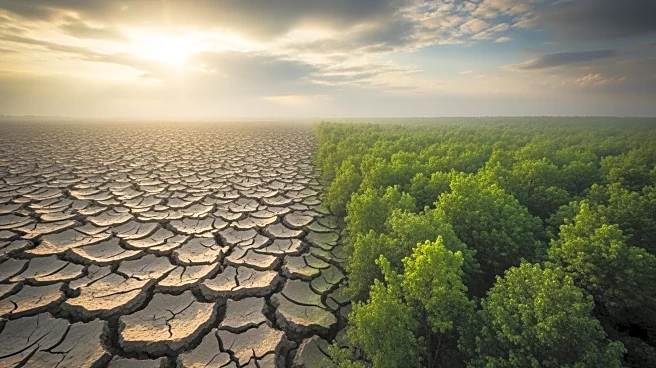What's Happening?
COP30, the international climate conference, is currently facing difficulties in advancing new initiatives aimed at phasing out fossil fuels. Despite ongoing discussions, the conference has yet to vote
on any significant measures. Various groups and parties have expressed disappointment over the lack of progress in negotiations concerning technology, research, and gender issues. The conference's presidency has outlined plans for continued talks in the second week, focusing on these critical areas. Meanwhile, communities across the U.S. are celebrating clean energy progress through events like Sun Day, which highlights the impact of solar power in regions affected by natural disasters and promotes the documentary 'The Light Won't Dim'.
Why It's Important?
The challenges faced by COP30 in addressing climate change initiatives underscore the complexities of international negotiations on environmental policies. The inability to reach consensus on phasing out fossil fuels could delay global efforts to combat climate change, affecting environmental and economic stability. The conference's outcomes are crucial for setting the direction of future climate policies and investments in renewable energy. As communities continue to advocate for clean energy solutions, the pressure on international leaders to deliver actionable results increases. The success or failure of COP30 could significantly influence public perception and policy decisions related to climate change.
What's Next?
As COP30 continues, stakeholders will likely push for more decisive action and commitments from participating countries. The second week of talks may bring renewed focus on technology and gender issues, potentially leading to breakthroughs in negotiations. Additionally, the ongoing promotion of clean energy initiatives in the U.S. could inspire further grassroots movements and local policy changes. The conference's outcomes will be closely monitored by environmental groups, policymakers, and the public, with potential implications for future climate agreements and international cooperation.










